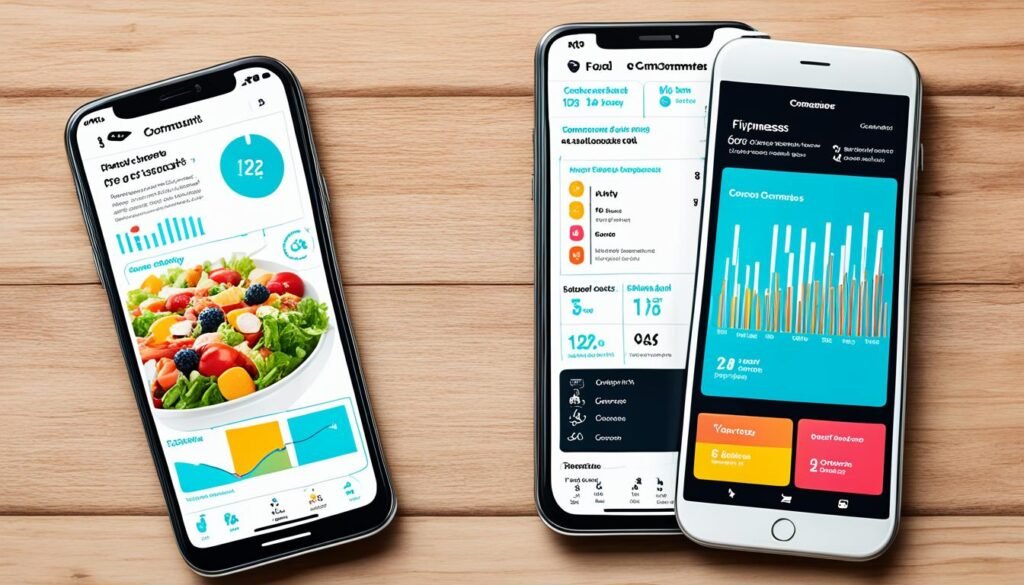We independently test and review fitness products using a research-based approach. If you buy through our links, we may earn a small commission at no extra cost to you. Read our Disclosure
Reaching your fitness goals is easier with the right tools, and personalized workout plans can make all the difference. In today’s market, smart fitness apps offer tailored guidance, advanced tracking, and expert coaching to help you reach your goals, whether you’re a seasoned athlete or just starting out.
Our team has reviewed over 30 apps to find the top 7. These apps offer the flexibility, customization, and results you need to transform your fitness journey.

Why Personalized Workout Plans Matter
Personalized workout plans are key to achieving your fitness goals efficiently. They are designed to match your specific fitness level, preferences, and goals, ensuring your workouts are both challenging and sustainable. By targeting the best exercises and intensity levels for you, these plans help you progress faster while avoiding injury and burnout.
The Best 7 Workout Apps to Build Muscle
Stop wasting time on generic programs. For 2026, we’ve reviewed and ranked the seven best workout apps that leverage cutting-edge programming, AI personalization, and world-class coaching. These apps provide the customized tools, progressive overload programs, and dedicated support you need to maximize your strength and size gains.
1. Fitbod: The Intelligent Strength Training Coach
Fitbod uses an adaptive learning algorithm to create personalized strength training programs. It adjusts your workouts as you get stronger, ensuring you’re always challenged.
- Best for: Weightlifters of all levels looking for an AI-powered coach.
- Pros: Over 1,000 exercises with HD videos, adapts to your available equipment, seamlessly integrates with wearable tech.
- Cons: Primarily focused on strength training, which may not appeal to those looking for a mix of cardio and other workouts.
2. JEFIT: The Comprehensive Workout Tracker
JEFIT is a powerful app for tracking your workouts and planning your routines. It offers a massive database of over 1,400 exercises and a community of over 12 million users for motivation.
- Best for: Gym-goers who want detailed workout tracking and a social community.
- Pros: Huge exercise library, pre-made workout routines, community support, works with wearables.
- Cons: The free version has ads, and the interface can feel a bit dated.
3. Future: The AI-Powered Fitness Companion
Future offers a unique experience by combining AI with a personal coach. It provides a highly personalized plan and real-time feedback by analyzing your data from wearables.
- Best for: Individuals who want the guidance of a personal coach and have a high-tech approach to fitness.
- Pros: Highly personalized plans, seamless wearable integration, tailored feedback.
- Cons: It is a premium service with a high monthly cost ($199/month).
4. MyFitnessPal: The Ultimate Calorie and Nutrient Tracker
MyFitnessPal is a well-known app that helps you integrate diet and exercise. Its massive food database and barcode scanner make it easy to track calories and nutrients to support your workout goals.
- Best for: Individuals who want to focus on diet and nutrition in addition to their workouts.
- Pros: Comprehensive food database, personalized nutrition advice, works with over 50 apps and devices.
- Cons: The primary focus is not on workout plans, and many features are locked behind a premium subscription.
5. Noom: The Holistic Wellness App
Noom stands out for its unique approach to wellness. It combines personalized workout plans and customized meal plans with a psychological focus to help you stay motivated and build healthy habits.
- Best for: Anyone who wants a holistic approach to wellness that includes both diet and psychological support.
- Pros: Offers personalized coaching, focuses on mental health and motivation, has an easy-to-use interface.
- Cons: The primary focus is on weight loss and may not be the best for those focused solely on building strength.
6. Aaptiv: The Audio-Based Fitness Class App
Aaptiv offers a unique workout experience by providing audio-based classes led by experienced trainers. This allows you to focus on your form and listen to cues without having to look at a screen.
- Best for: Those who prefer audio coaching for runs, outdoor workouts, or other activities where watching a screen is impractical.
- Pros: Over 8,000 audio and video workouts, trainers are motivating, works with heart rate zones for targeted training.
- Cons: Can be difficult to follow for beginners without a visual reference.
7. Peloton: The Interactive Workout Experience
Peloton is famous for its live and on-demand classes. Beyond its signature cycling classes, the Peloton app offers a wide variety of workouts, including strength, running, yoga, and meditation.
- Best for: Anyone who wants the energy of live, interactive classes and a strong social community.
- Pros: Excellent instructors, huge variety of classes, a motivating social leaderboard.
- Cons: The all-access membership is expensive, and it requires specific, pricey equipment for the full experience.

Conclusion
Personalized workout apps are a powerful tool for achieving your fitness goals. Whether you need a smart trainer like Fitbod, a holistic approach like Noom, or the energy of a community like Peloton, there’s a perfect app for everyone. These apps are designed to help you stay motivated, consistent, and on the path to a healthier, stronger you.
FAQs
What are the key benefits of using a personalized workout app?
Personalized workout apps offer tailored plans, expert coaching, and progress tracking, all from your phone. They help you stay motivated, build better habits, and achieve your goals more efficiently.
Are these apps suitable for beginners?
Yes. Most of the apps on this list, like Fitbod and JEFIT, are designed with adaptive algorithms that adjust workouts to any fitness level.
What is the best app for a specific goal?
The best app depends on your goal. If you want to build muscle, choose Fitbod or JEFIT. For a complete wellness approach, Noom or MyFitnessPal are great. For high-energy classes, Peloton or Aaptiv would be ideal.


